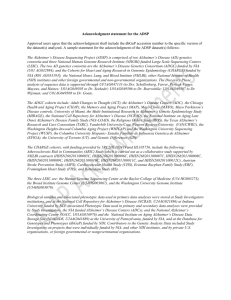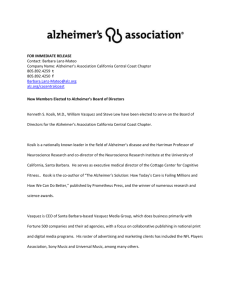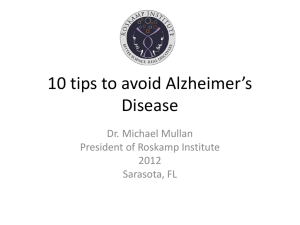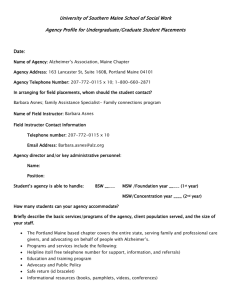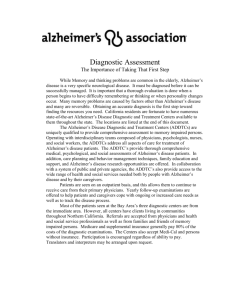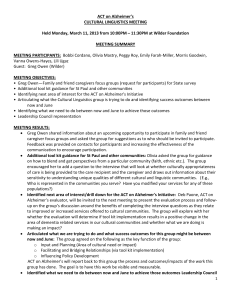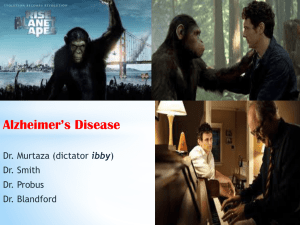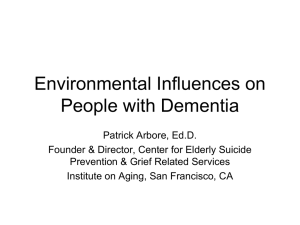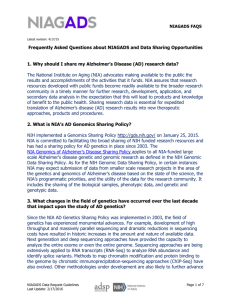Supplementary Box 1 | Contacts, funding sources and
advertisement
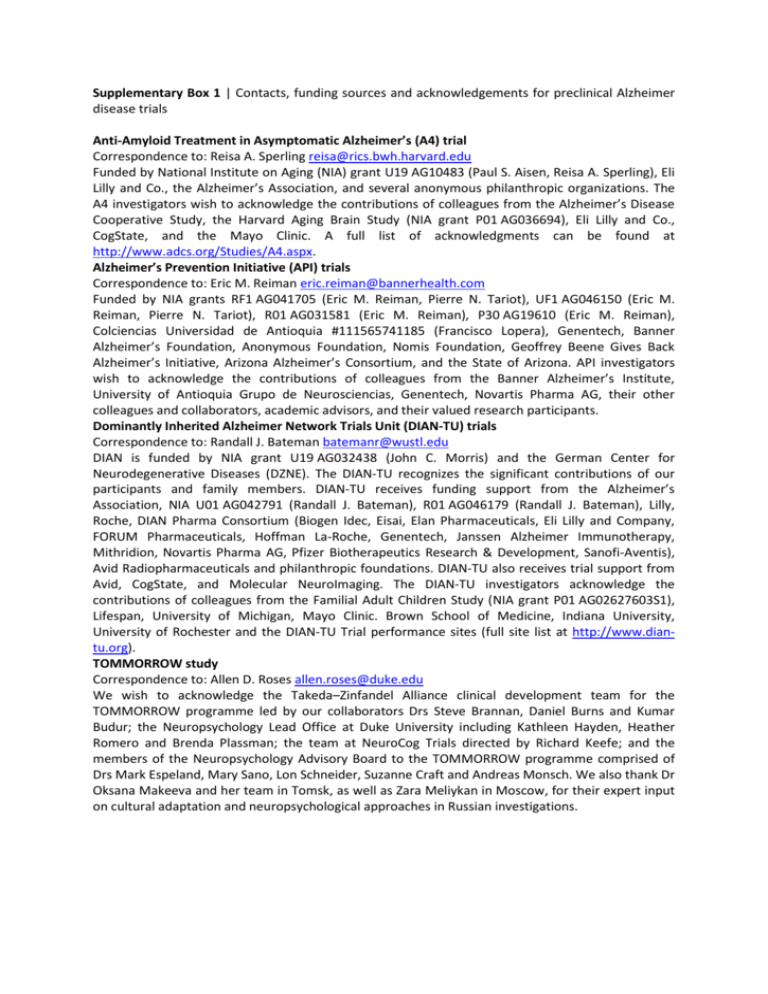
Supplementary Box 1 | Contacts, funding sources and acknowledgements for preclinical Alzheimer disease trials Anti-Amyloid Treatment in Asymptomatic Alzheimer’s (A4) trial Correspondence to: Reisa A. Sperling reisa@rics.bwh.harvard.edu Funded by National Institute on Aging (NIA) grant U19 AG10483 (Paul S. Aisen, Reisa A. Sperling), Eli Lilly and Co., the Alzheimer’s Association, and several anonymous philanthropic organizations. The A4 investigators wish to acknowledge the contributions of colleagues from the Alzheimer’s Disease Cooperative Study, the Harvard Aging Brain Study (NIA grant P01 AG036694), Eli Lilly and Co., CogState, and the Mayo Clinic. A full list of acknowledgments can be found at http://www.adcs.org/Studies/A4.aspx. Alzheimer’s Prevention Initiative (API) trials Correspondence to: Eric M. Reiman eric.reiman@bannerhealth.com Funded by NIA grants RF1 AG041705 (Eric M. Reiman, Pierre N. Tariot), UF1 AG046150 (Eric M. Reiman, Pierre N. Tariot), R01 AG031581 (Eric M. Reiman), P30 AG19610 (Eric M. Reiman), Colciencias Universidad de Antioquia #111565741185 (Francisco Lopera), Genentech, Banner Alzheimer’s Foundation, Anonymous Foundation, Nomis Foundation, Geoffrey Beene Gives Back Alzheimer’s Initiative, Arizona Alzheimer’s Consortium, and the State of Arizona. API investigators wish to acknowledge the contributions of colleagues from the Banner Alzheimer’s Institute, University of Antioquia Grupo de Neurosciencias, Genentech, Novartis Pharma AG, their other colleagues and collaborators, academic advisors, and their valued research participants. Dominantly Inherited Alzheimer Network Trials Unit (DIAN-TU) trials Correspondence to: Randall J. Bateman batemanr@wustl.edu DIAN is funded by NIA grant U19 AG032438 (John C. Morris) and the German Center for Neurodegenerative Diseases (DZNE). The DIAN-TU recognizes the significant contributions of our participants and family members. DIAN-TU receives funding support from the Alzheimer’s Association, NIA U01 AG042791 (Randall J. Bateman), R01 AG046179 (Randall J. Bateman), Lilly, Roche, DIAN Pharma Consortium (Biogen Idec, Eisai, Elan Pharmaceuticals, Eli Lilly and Company, FORUM Pharmaceuticals, Hoffman La-Roche, Genentech, Janssen Alzheimer Immunotherapy, Mithridion, Novartis Pharma AG, Pfizer Biotherapeutics Research & Development, Sanofi-Aventis), Avid Radiopharmaceuticals and philanthropic foundations. DIAN-TU also receives trial support from Avid, CogState, and Molecular NeuroImaging. The DIAN-TU investigators acknowledge the contributions of colleagues from the Familial Adult Children Study (NIA grant P01 AG02627603S1), Lifespan, University of Michigan, Mayo Clinic. Brown School of Medicine, Indiana University, University of Rochester and the DIAN-TU Trial performance sites (full site list at http://www.diantu.org). TOMMORROW study Correspondence to: Allen D. Roses allen.roses@duke.edu We wish to acknowledge the Takeda–Zinfandel Alliance clinical development team for the TOMMORROW programme led by our collaborators Drs Steve Brannan, Daniel Burns and Kumar Budur; the Neuropsychology Lead Office at Duke University including Kathleen Hayden, Heather Romero and Brenda Plassman; the team at NeuroCog Trials directed by Richard Keefe; and the members of the Neuropsychology Advisory Board to the TOMMORROW programme comprised of Drs Mark Espeland, Mary Sano, Lon Schneider, Suzanne Craft and Andreas Monsch. We also thank Dr Oksana Makeeva and her team in Tomsk, as well as Zara Meliykan in Moscow, for their expert input on cultural adaptation and neuropsychological approaches in Russian investigations.
